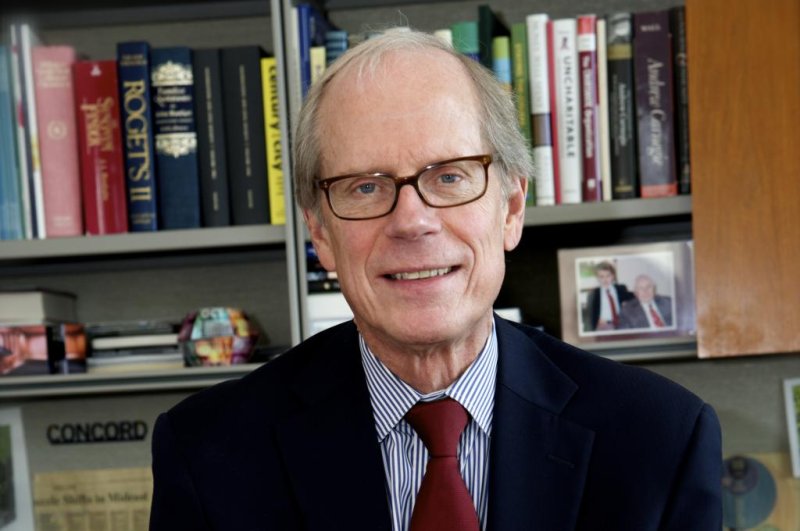Stephen Heintz, president of the Rockefeller Brothers Fund, called the climate crisis "a tipping point" from which the world may "never recover." Photo by Irene Hell
While UN Secretary-General Ban Ki-moon and world leaders gather in Paris for the climate summit, the most challenging question is how find the trillions needed to save the world's climate.
Help comes from the least expected place: The heirs of oil magnate John D. Rockefeller are determined to end the oil age, and they are hitting the industry which made them rich and powerful -- and caused global warming -- at its core.
The announcement of the Rockefeller Brothers Fund, the embodiment of oil, wealth and power, to divest from fossil fuels, made global headlines in September 2014.
Since then, the total capital managed by institutions and individuals committed to divest assets increased from $50 billion to $3.4 trillion -- a staggering amount which comes close to the GDP of Germany.
This announcement was made Wednesday by Bill McKibben, the founder of 350.org and Divest-Invest at a press conference in Paris.
Among the more than 500 institutions committed to divest -- to shift assets from fossil fuel to green investments -- is Allianz. Europe's largest insurance company will pull out of coal and invest $ 4 billion in wind energy.
The world's largest sovereign wealth fund, Norway's Government Pension Fund Global; Glasgow University; the London School of Economics; the city of Muenster, Germany; and the Church of England are also divesting from the most heavily polluting fossil fuels.
"The movement started at college campuses", observed Ellen Dorsey, executive director of Wallace Global Fund, one of the driving forces behind the Divest/Invest initiative.
"The snowball is rolling," she said.
Valerie Rockefeller Wayne does not credit the skyrocketing increase in divested assets to the "Rockefeller Effect".
However, the outspoken chair of the Rockefeller Brothers Fund is aware that the announcement that Rockefellers are pulling out of fossil fuels has some impact on the financial markets.
"Not very long ago the message was: 'We can't afford to pull out of oil, gas, and coal.' Now it's risky to stay invested in dirty fuel companies," Rockefeller Wayne told UPI in an exclusive interview.
A teacher by training, the grand-grand-granddaughter of tycoon John. D. Rockefeller, dared to challenge Wall Street credos:
"Those are stranded assets. If we don't want to cook our planet, we can't burn 75 percent of the fossil fuel reserves that already exist. There are more government regulations and public pressure to keep global warming under two degrees (Celsius)."
What is the reason behind the Rockefeller Brothers Fund's (RBF) radical move, which certainly brought Rockefeller Wayne not only global headlines but also enemies?
"Now that we know that climate change is happening there is absolutely no excuse not to do everything we can to stop it." Rockefeller Wayne added self-critically, "The RBF endowment is based largely based on Standard Oil wealth. Of course we feel a special obligation to try to undo the damage which was done by the oil industry."
Stephen Heintz, president of RBF and currently at the Climate Summit, explained why the Rockefellers are determined to save the climate:
"We are facing two competing tipping points in global history. One is the climate tipping point: A point of no return. If we tip over that point, we can never recover, and we will suffer the devastating consequences."
Heintz and hundreds of thousands of activists are determined to do whatever it takes to make the Paris Climate Summit a success. Heintz told UPI, "If we don't prevent climate change, the refugee crisis we see today will look small in comparison to the crisis that we will happen later this century.... We could be moving from an era of oil wars to a time of climate wars."
Irene Hell is a German journalist and photographer specialized in reporting on the United Nations. She is also the founder of Friends in Media, an international NGO which supports high profile journalists.















